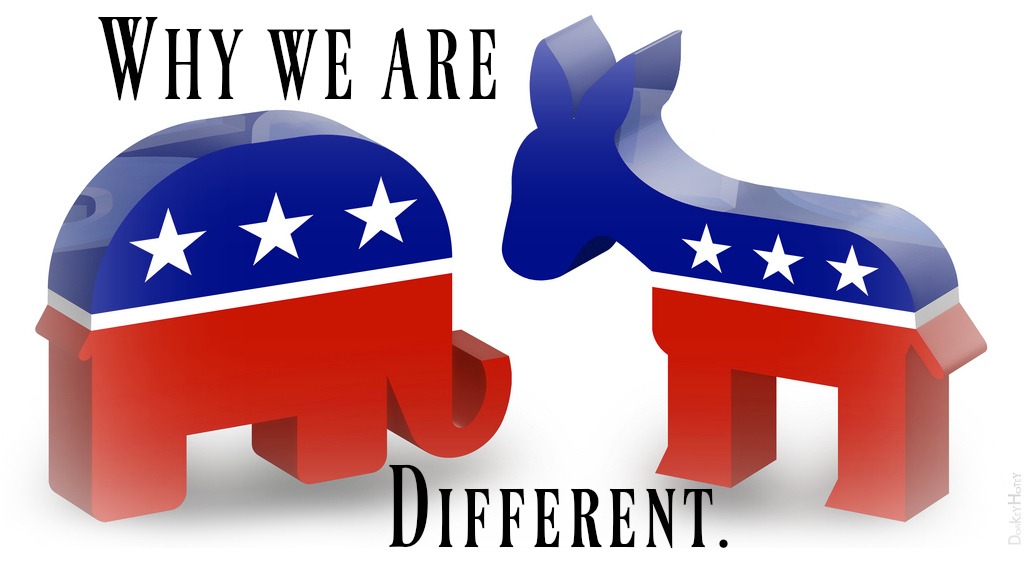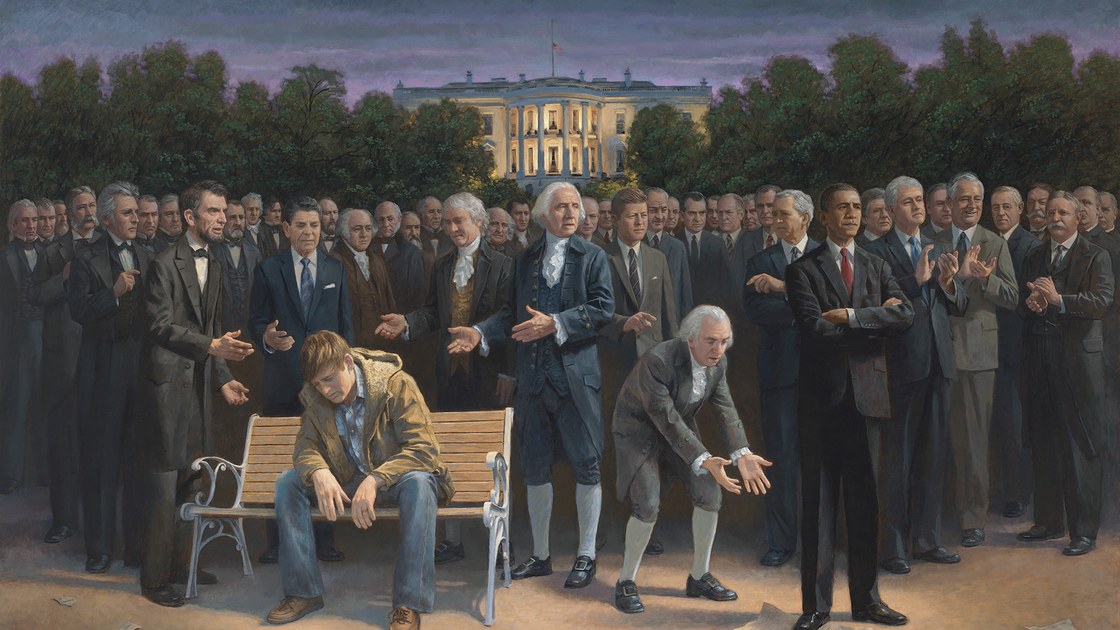
My young daughters voice sounded from the back seat while driving home from her piano lesson last week…
“Mom,” she asked, “what’s the difference between a Democrat and a Republican?”
I did my best to answer but felt my response was a bit stereotypical, (and not in a positive way). Why do I do that? I thought to myself. Am I the only one that does this when talking about the other political party?
My daughters question gave me a lot to think about. In that reflection I surprised myself by developing some deeper understandings as to why people may or may not choose to align themselves with a particular political party. I realize I run the risk of creating my own stereotypes here, but I think my assessments will at least give people (from both parties) something to consider.
Democrats are good people. They care deeply about the poor and underprivileged. That’s why they support big government. They’re compassionate human beings who truly care about those who struggle. They may or may not have a lot of money but their self worth is not defined by their bank account. They’re happy to share with others and are genuinely giving and compassionate by nature. They love their planet, feel a special connection to nature and feel a responsibility to preserve and protect threatened wildlife and the environment. They believe in tolerance and acceptance of all points of view and perspectives. They want everyone regardless of race, religion, lifestyle or personal choices to be tolerated and accepted and allowed to make whatever choices they feel are right without limitation or restriction from others.
Republicans are good people. They believe in taking personal responsibility for themselves and accepting the consequences of their choices. That’s why they support limited government. They’re hard-working, self-reliant individuals that would rather struggle on their own than accept help from others. They hold to a high moral standard often based on a religious belief in a higher power whose divine laws reign supreme over current pop culture and the changing philosophies of men. They believe in right and wrong, and although imperfect, they strive to live their lives in a way that is morally sound, honest and good and wish for others to do the same.
In both political parties I believe the majority of people are good. Unfortunately, politicians and cable news networks are famous for creating negative stereotypes about Republicans and Democrats that bring out the worst qualities and characteristics of people who tend to unite with the opposing political party.
Do any of these sound familiar?
The UGLY REPUBLICAN: The selfish, greedy, money-hungry Republican that only cares about the success of his multi-million dollar company and will do whatever it takes to be successful whether its harming the environment, underpaying his workers or manipulating the tax code to his benefit. He hates women and wants to oppress them in any way he can. He’s a racist, homophobic, xenophobic religious fanatic that doesn’t care about the poor and suffering of anyone and will step on anyone who gets in the way of his success.
And what about this one?
The UGLY DEMOCRAT: The lazy, irresponsible, pot-smoker who screwed around in high school, got pregnant at 16 and blames the world, their race, their lack of privilege for the problems and poor decisions they’ve made. They take no personal responsibility for their lives or accountability for their choices. They’re jealous of the success of others and want what they can’t have or aren’t willing to work for. They want big government to bail them out by heavily taxing the successful in order to pay for the free handouts they receive through government-funded programs.
It’s true we can probably all find a poster child for the ugly stereotypes pushed on us by both political parties. But these are not the majority. They are the minority. The majority of Republicans and Democrats are good, responsible citizens who love their country, love their families and are trying their hardest to do their best to be successful, make a difference in the world and live peaceably with each other.
So the next time someone asks you what’s the difference between a Republican and a Democrat don’t fall into the trap that I did and stereotype people from the other political party. And when someone’s political perspective on Facebook opposes your own, remember the good in them and try to find understanding for what motivates their political leanings. If we focus on what unites us instead of what divides, we may find that the differences between us are not so big after all.
Related
About The Author
Thirty-Something Soccer Mom
I’m an outspoken wife and mother of four with an opinion on nearly everything.
Related
Related Posts
We Get the Presidents We Deserve
“We get the Presidents we deserve. A great people is what you need for a…
Related
“Seek to Understand…” Why Conservatives Won’t Give Up Their Guns.
Have you ever wondered why conservatives are so opposed to limitation and regulation of our…
Related
%d


